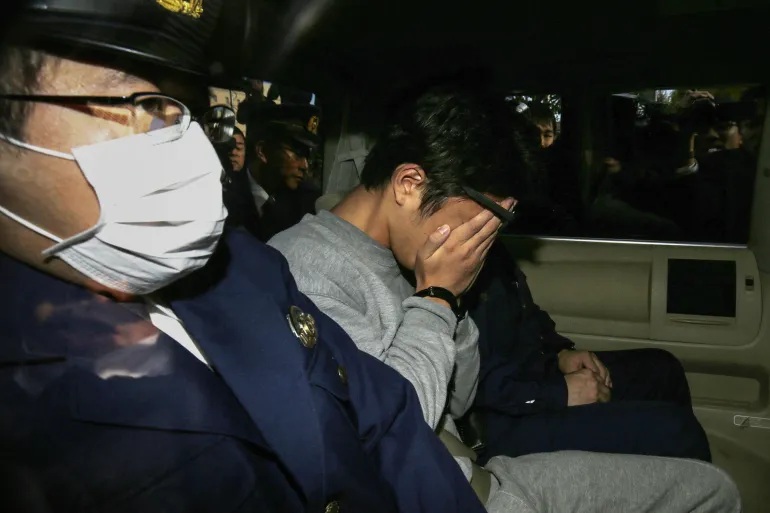In a case that has horrified Japan and captured global attention, the country has carried out its first execution in nearly three years.
Takahiro Shiraishi, infamously dubbed the “Twitter Killer,” was executed by hanging on Friday, June 27, 2025, for the 2017 murders of nine people, eight women and one man.
The victims were people he met on social media, specifically Twitter (now X), under the pretense of helping them end their lives.
Shiraishi’s crimes were chilling in their brutality and manipulation.
He exploited people’s vulnerability, targeting those expressing suicidal thoughts online.
Posing as someone who could empathize with their pain and assist in their final moments, he lured them into his apartment in Zama, a city southwest of Tokyo.
What followed was a string of calculated murders, dismemberments, and a macabre effort to conceal the remains in coolers scattered around his home.
The Japanese justice minister, Keisuke Suzuki, who authorized the execution, stated the decision came after careful deliberation.
He described Shiraishi’s motives as “extremely selfish” and said the crimes sparked “great shock and unrest” in Japanese society.
The decision also marks the first time Japan has implemented capital punishment since July 2022.
This is the first execution since the government of Prime Minister Shigeru Ishiba took office in late 2024.
For many, Shiraishi’s case serves as a chilling intersection of mental health, digital vulnerability, and criminal exploitation.
It raises urgent questions for Gen Z, the most online generation in history: What responsibilities do social media platforms bear in monitoring content related to mental health and suicide?
And how do we protect people who turn to the internet for support during their darkest moments?
Shiraishi’s actions are a stark reminder of how digital spaces, while often empowering and connective, can also be exploited.
His manipulation of suicidal individuals shines a harsh light on the lack of adequate support systems for mental health in both online and offline spaces.
This is especially in a country like Japan, where suicide remains a major public health issue.
Japan’s use of the death penalty continues to be a topic of heated debate both domestically and internationally.
Despite criticism from human rights organizations, the country maintains strong public support for capital punishment.
A recent government poll conducted in 2024 found that 83% of respondents consider the death penalty “unavoidable.”
This supposedly reflects widespread belief that certain crimes are simply beyond redemption.
Japan is one of only two G7 countries, the other being the United States, that still enforce the death penalty.
It is also one of the few places where executions are carried out in near-total secrecy.
Inmates on death row are typically given only a few hours’ notice before execution, a practice that has been widely criticized for causing psychological torment.
The method of execution remains hanging, an antiquated and, many argue, inhumane process.
This latest execution comes amid a broader reevaluation of Japan’s justice system.
Just last year, the courts overturned the conviction of Iwao Hakamada, a man who had spent over 50 years on death row, making him the world’s longest-serving death row inmate.
His case cast serious doubt on the reliability of confessions and evidence used in Japan’s legal system.
This has sparked renewed discussions about wrongful convictions and the irreversible nature of capital punishment.
The country’s most high-profile execution in recent memory took place in 2018.
At that time, Shoko Asahara, the leader of the Aum Shinrikyo cult responsible for the deadly 1995 sarin gas attack on Tokyo’s subway, was put to death alongside 12 of his followers.
As for Shiraishi, his case might soon fade from headlines, but the story leaves a lasting imprint.
It reportedly forces a generation raised online to confront the darker possibilities of digital life, challenges society to rethink mental health outreach.
It also stirs ongoing debate over justice, punishment, and humanity.
While the justice system has closed the book on Shiraishi, the conversations sparked by his crimes, about online safety, the ethics of capital punishment, and mental health awareness, are only just beginning.







